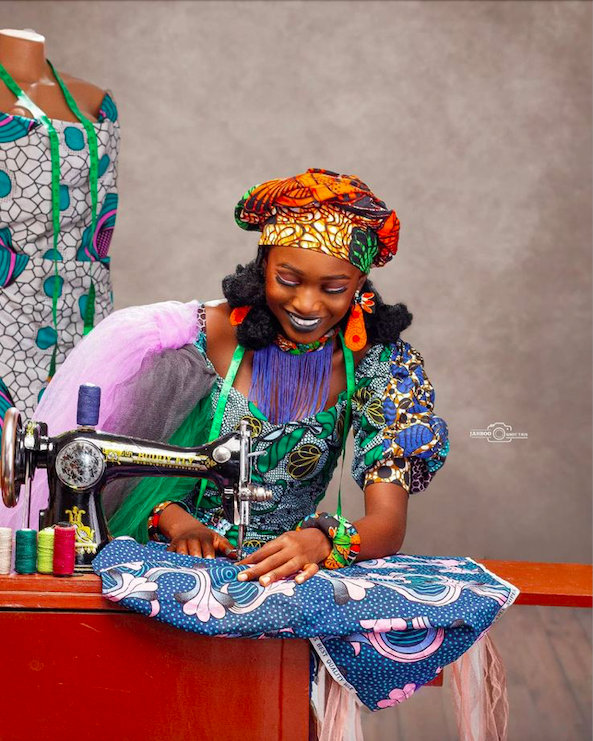Markets may look different now; from Instagram shops to pop-up events, and from side-street hustles to fully digital stores. Yet, if you look closely, the spirit of trade hasn’t changed. Just like the bustling market squares of our ancestors, today’s youth-driven businesses are built on community, trust, and adaptability. The names of the stalls may be different, and the medium may be digital, but the heartbeat is the same. Across Africa, youth businesses and traditional markets remain connected by the same values of trust, community, and creativity.
The Old Markets: A Quick Look Back

For the Igbo people, life and trade revolved around the four market days: Eke, Orie, Afor, and Nkwo. These weren’t just days to buy and sell; they were the organizing rhythm of society. Families planned, farmers harvested, artisans crafted, and communities gathered around these cycles.
The market square was more than an economic hub. It was where news traveled, disputes were settled, and alliances were built. In Igbo society, to go to the market was not only to trade goods but also to trade knowledge, laughter, and community.
As the Igbo say, “Ahia oma na-ere onwe ya” — a good market sells itself. This wisdom still applies today, even in the age of hashtags and online carts.
Trading Spaces Today: Youth Commerce in Action

Fast forward to today, and the face of commerce has transformed, but its essence remains:
- Street vendors and small shops: These are the echoes of the old village stalls, bringing affordability and accessibility right to the people.
- Online stores and Instagram shops: These are the new digital market squares, buzzing with likes, comments, and swift deliveries. They function much like Nkwo, where everyone gathered, except now the gathering is virtual.
- Pop-ups, trade fairs, and collab spaces: These are modern “Nkwo markets,” where young people showcase creativity, test new products, and foster collaborations.
The trading ground has shifted, but the rhythm of enterprise continues.
Mirroring the Old Markets
- Community-Driven Trade
Just as old markets were about gathering people together, youth businesses today create thriving communities both online and offline. A simple Instagram shop can rally a loyal base of followers who buy, share, and promote, much like villagers spreading word in the square. - Trust as Currency
In the old markets, your reputation was your capital. Word-of-mouth could make or break you. Today, that trust is measured in reviews, ratings, testimonials, and even followers. One bad review carries the same weight as gossip in Nkwo market.
“Onye ajuju adighi efu uzo” — he who asks questions does not miss the road. In both old and new markets, trust grows from people asking, verifying, and relying on one another. - Adaptability
Old markets shifted with seasons; yam in its time, palm oil in its season, and so on. Likewise, today’s youth businesses adapt quickly to trends, from fashion to tech, ensuring they remain relevant. What mattered then, matters now: flexibility is survival.
Why the Parallel Matters
This continuity is not just nostalgic; it is powerful.
- It shows that commerce is both cultural and generational.
- It reminds us that youth are not abandoning tradition but carrying forward ancient systems, reshaping them with creativity.
- It strengthens the link between tradition and innovation, proving that one cannot thrive without the other.
When youth reimagine trade, they are not creating in isolation, they are building upon centuries of market wisdom, applying it to the digital and urban worlds.
Inspiring Examples of Young Entrepreneurs Keeping the Market Spirit Alive
- A young fashion designer who started from a roadside stall but now sells globally through Instagram.
- Tech-savvy farmers who live-stream their produce sales, echoing the direct farm-to-market trade of old.
- Pop-up vendors who collaborate in shared spaces, recreating the sense of gathering once found at Nkwo.
These stories show that the market is not dead, it has simply traded spaces.
Conclusion
Old or new, the marketplace has always been about people, exchange, and trust. The Igbo ancestors who traded in Eke or Nkwo would recognize the same values in today’s Instagram vendors and pop-up creators.
Youth businesses are not replacing the old markets; they are reimagining them for today’s world. And in that reimagining, we see something profound:
Markets may shift their ground, but the heartbeat of trade; community, trust, adaptability, remains eternal.
